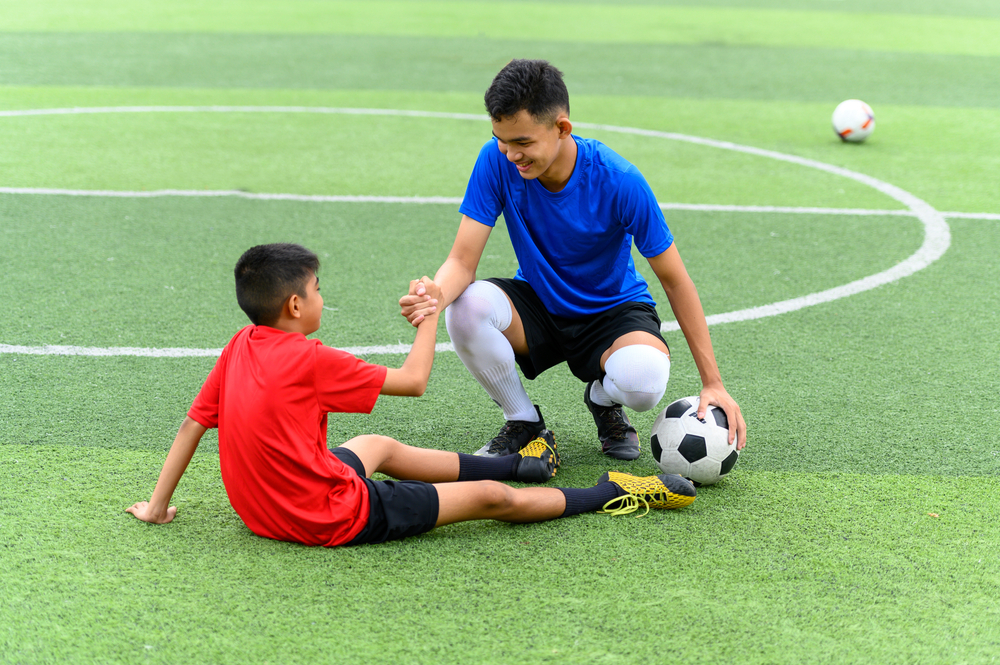Sports have long been acknowledged as a potent medium for personal growth, providing players with a multitude of chances to acquire important life lessons both on and off the field. Participating in sports develops resilience, teamwork, discipline, and leadership—qualities that are critical for success in all facets of life, in addition to physical prowess and athletic skills. This article delves into the significant influence of sports on individual growth and the priceless life lessons that athletes acquire from their on-field experiences.
Resilience
The capacity to overcome obstacles and setbacks is one of the most significant life lessons that sports can impart. In sports, it’s inevitable to fail and lose, but how players handle these setbacks ultimately determines their character. Athletes are taught to get up, dust themselves off, and bounce back from setbacks and injuries with greater vigor than before. Resilience developed on the field can be applied to other facets of life, enabling people to face challenges head-on and triumph over hardship with bravery and tenacity.

Teamwork
Team sports in particular place a strong emphasis on cooperation and teamwork. Athletes develop their ability to collaborate to achieve a common objective, relying on one another’s advantages and encouraging one another through difficulties. Athletes learn a great deal about trust and camaraderie via shared triumphs and setbacks. They also realize that success is not attained by individuals but rather by a cohesive team. Beyond the field, athletes are taught the importance of cooperation and teamwork in accomplishing shared objectives in both their personal and professional lives.
Discipline
Athletes must follow strict training schedules, lead healthy lifestyles, and put their goals ahead of their own satisfaction. These demands place a heavy burden on athletes. Athletes develop the self-control, focus, and perseverance habits necessary for success in any endeavor through focused practice and dedication. Athletes can stay motivated and accomplish their long-term goals because of the discipline sports instill. This discipline can be applied to studying for exams, pursuing career goals, or maintaining relationships.
Leadership
Participating in sports gives people the chance to hone their leadership abilities and assume accountability within their teams. In order to help and motivate their teammates to realize their full potential, captains, coaches, and senior players act as mentors and role models. Athletes are taught to set an example for their peers by exhibiting traits like integrity, empathy, and resilience that foster respect and trust. Athletes can assume leadership roles in their communities, workplaces, and interpersonal relationships thanks to these leadership abilities that go beyond the field.
Adaptability
Because sports environments are dynamic, athletes must be able to change with the times and modify their tactics accordingly. Athletes are taught to think quickly on their feet and make snap decisions under pressure, whether it’s adjusting to opponents’ tactics, weather conditions, or unforeseen obstacles. Athletes who develop this adaptability on the field are better equipped to deal with the challenges of everyday life with flexibility and agility, viewing change as a chance for personal development rather than a roadblock to achievement.
Goal Setting
Establishing and accomplishing objectives is a vital component of sports, as players aim to enhance their abilities, emerge victorious in contests, and attain unprecedented benchmarks. Athletes can learn to pinpoint their areas of strength and weakness, create improvement plans, and monitor their development over time by setting goals. Athletes are empowered to set high goals in both their personal and professional lives and take proactive measures to achieve them thanks to this goal-setting mindset, which transcends beyond sports.
Sportsmanship
Athletes are taught the fundamental values of sportsmanship, which emphasize fairness, integrity, and respect in competition, at a young age. Athletes are taught to behave with grace and humility, respecting officials, rival teams, and teammates regardless of the outcome of a game. Athletes that exhibit good sportsmanship understand the value of competing with honor and integrity and placing the game’s spirit above personal success or recognition. These principles of good sportsmanship apply to moral behavior and sportsmanship in all spheres of life, building bridges and promoting an environment of justice and respect for all.

Conclusion
In summary, sports have a significant influence on personal growth and teach players important life lessons that go well beyond the playing field. Athletes develop traits that are crucial for success in life, from discipline and leadership to resilience and teamwork. Athletes acquire the abilities, principles, and character qualities necessary to succeed and have a positive influence on both their communities and the wider world by embracing the opportunities and challenges that come with playing sports.

